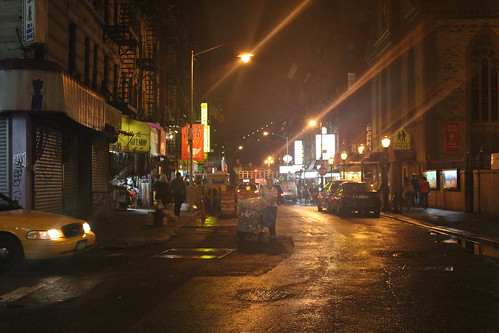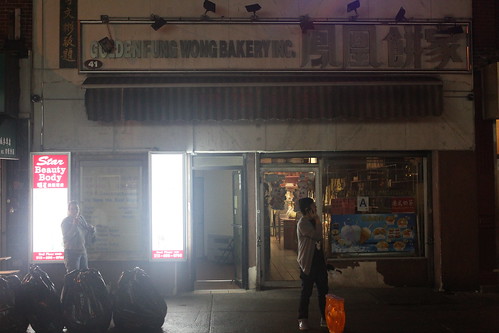NEW YORK — Chinatown bar owners are skeptical about the Business Improvement District’s expected boost to tourism given the area’s sedate nightlife.
With over 200 Chinese restaurants, street markets and cultural novelty stores, Canal Street has always been Chinatown’s anchor for tourism. However, the majority of these stores close their doors by 8 p.m., leaving a handful of sporadic bars to keep the nightlife alive. Bar owners feel the newly approved Chinatown BID bill, which is supposed to boost tourism by improving sanitation, signage, and lighting, might do little to revitalize businesses that are suffering from inflation, high rents, and competition from the newer Chinatowns of other boroughs.
“When I was young, Chinatown was open for 24 hours,” said Teddy Mui, manager of Winnie’s Bar & Restaurant on Bayard Street. “Now, the nightlife has died down.”
The completion of the 9/11 Memorial Park will draw an expected 5 million tourists to lower Manhattan, according to Kelly Magee, Communications Director for City Council Member Margaret Chin. The City Council hopes the BID budget of $1.3 million — which will take effect by the end of the year — will attract more tourists into exploring Chinatown and increasing revenue on these small businesses.
“Most tourists equate Chinatown to only Canal Street,” said Magee “We know there’s much more to offer here. It’s just a matter of telling them where to go.”
An average of 74 percent of commercial property owners would pay less than $1000 yearly to the BID to maintain these improvements. Magee assured the BID will have minimal impact on small businesses as it’s a tax-deductible business expense and not connected to rentals. However, bar owners, like Mei Chan of Asia Roma Restaurant Bar and Lounge on Mulberry Street, are not convinced their rent will remain the same with the landlord’s additional maintenance cost.
“If you’re going to tax the landlord, it’s going to end up passing to me,” said Chan. She also questioned the BID and its similarities with the Chinatown Partnership Local Development Corporation project.
The Chinatown Partnership LDP was already making community improvements to Chinatown by cleaning up the streets. Chan feels additional aesthetic improvements are unnecessary as high Manhattan rents are driving businesses away to Brooklyn or Flushing, leaving many empty store fronts.
“It’s not like signs will make this area more obvious to tourists,” said Chan. “You’ve got to get businesses back into Chinatown instead.”
In addition, bar owners fear it will do little to attract more after-hour tourists. Winnie’s, a 70s Chinese retro dive bar, has been in Chinatown for 25 years and it is one of the first karaoke bars in the city. Two years ago, Mui took over the business from his mother and saw a decline of bars in the area from 20 in the late 90s to the existing three today, attributing it to high operational costs in the city.
Mui’s business saw an 8 percent decrease in revenue due to rising alcohol, repair maintenance, and electric costs over the past two years; despite having consistent average sales of $2000 per night. “In times of recession and inflation, profits are bound to be lower,” said Mui. “We just want to keep the business running and have a little money on the side.”


